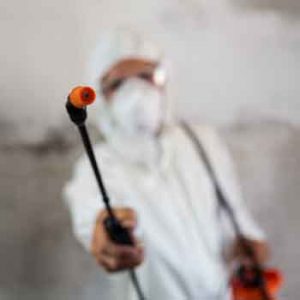
More evidence that low-calorie sweeteners are bad for your health
Studies show that artificial sweeteners can raise the risk of hypertension, metabolic syndrome, type 2 diabetes and heart disease, including stroke.

Why do farmers use pesticides?
Many will tell you that it is to reduce crop losses due to a wide variety of pests including weeds, insects and fungi. Reducing crop losses equals more food for the farmer to sell and more for us to eat.
In a world of climate change and population explosion this equation has become distorted however; skewed in favour of those who profit most from pesticide use – chemical corporations. Many of these big multinationals now claim that pesticides help us feed the world.
It’s a self-serving myth for the $50bn (£41bn) a year – and growing – industry. But don’t you believe it.
The UN weighs in
A report out this week from the United Nations, co-authored by Hilal Elver, the UN’s new special rapporteur on the right to food and Baskut Tuncak, the UN’s special rapporteur on human rights and hazardous substances, blasts through the mythology that surrounds pesticides and gets to the heart of the matter: pesticides don’t help feed the world and they do enormous harm.
Elver, in particular has big shoes to fill. Her predecessor Oliver de Schutter built a reputation for pulling no punches when it came to the continual failure of the industrial farming model to feed the world – and the growing damage it was doing to the environment and our health.
Catastrophic effects
This new report sets a tone which if maintained could provide significant momentum to change the way we farm and eat. Given the amount of space we have devoted over the years to the harm that pesticides cause, to people and planet, it’s encouraging to see this topic finally given some official recognition.
Itis deeply critical of the international corporations that manufacture pesticides and goes as far as to accuse them of “aggressive, unethical marketing tactics”, “systematic denial of harms” and heavy lobbying of governments which has “obstructed reforms and paralysed global pesticide restrictions”.
It goes on to say that pesticides have “catastrophic impacts on the environment, human health and society as a whole”, including an estimated 200,000 deaths a year from acute poisoning.
Feeding the world?
It is widely accepted now that famine and malnutrition are not caused by not producing enough. They are certainly not caused by lack of pesticides. They are caused by speculation and market forces and by a lack of political backbone and the will to get food to those who most need it.
The pesticides used so widely in farming are largely used on monoculture ‘cash’ crops like soya and maize – foods that don’t go to feed the world’s hungry but instead are turned into ingredients – like cheap fillers and high fructose corn syrup – which contribute to another escalating ‘hunger’ problem – malnutrition in the overfed.
Depending on which expert opinion you listen to we are already producing enough food to feed between 9 and 14 billion people – significantly more than the current world population and enough to keep ahead of the curve if – and it’s a big IF – we can find a way to farm that doesn’t destroy the very natural environment on which farming depends.
Nothing short of a whole system reform will begin to address the issues of feeding the world. As the authors of the new report conclude “It is time to create a global process to transition toward safer and healthier food and agricultural production.”
Good news from France
Chemical manufacturers are, of course, unhappy with the UN report and maintain that pesticides have a central role to play in the future of farming. But serendipitous research from France, just published, shows this simply isn’t true.
France has already made moves to ban pesticide use in public spaces, but use in agriculture is harder to shift.
The analysis in Nature Plants, however, found that 59% of all farms in France could reduce their use of pesticides by approximately 42% without harming yields. Doing this would mean a huge reduction of 37% in the use of herbicides, 47% in fungicides and 60% in insecticides.
Farmers use pesticides out of habit – and the concurrent loss of knowledge about alternatives. New trade deals, especially between the US and UK, are aimed in part at reducing regulation and removing vital safety and risk assessments in order to open up the marketplace for pesticides and feed our pesticide habit.
Do whatever you can
You may feel overwhelmed with world changing things to make sense of right now, but wherever and however you can, I urge you to support better food and farming.
Ensuring a safe, clean food supply for generations to come should be at the top of everyone’s priority list – because doing so can help tackle so many of the problems we currently struggle with including climate, change, pollution and a toxic environment, equality, fairness, child health and the rise of non-communicable diseases.
Oh yes, and it will feed the world as well.
Pat Thomas, Editor

Please subscribe me to your newsletter mailing list. I have read the
privacy statement